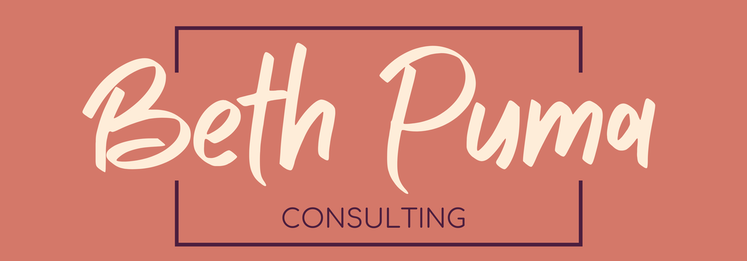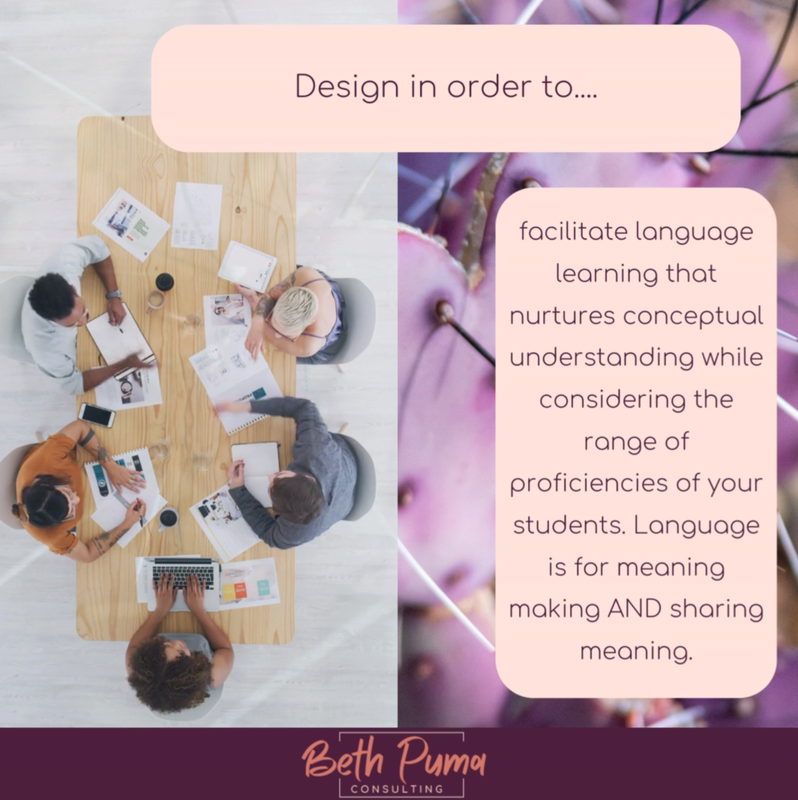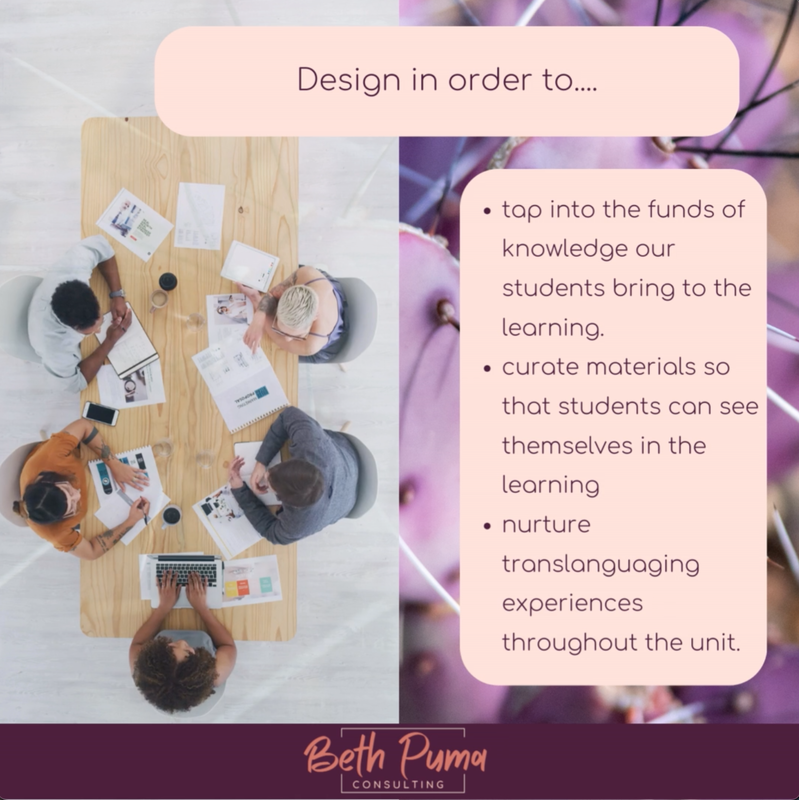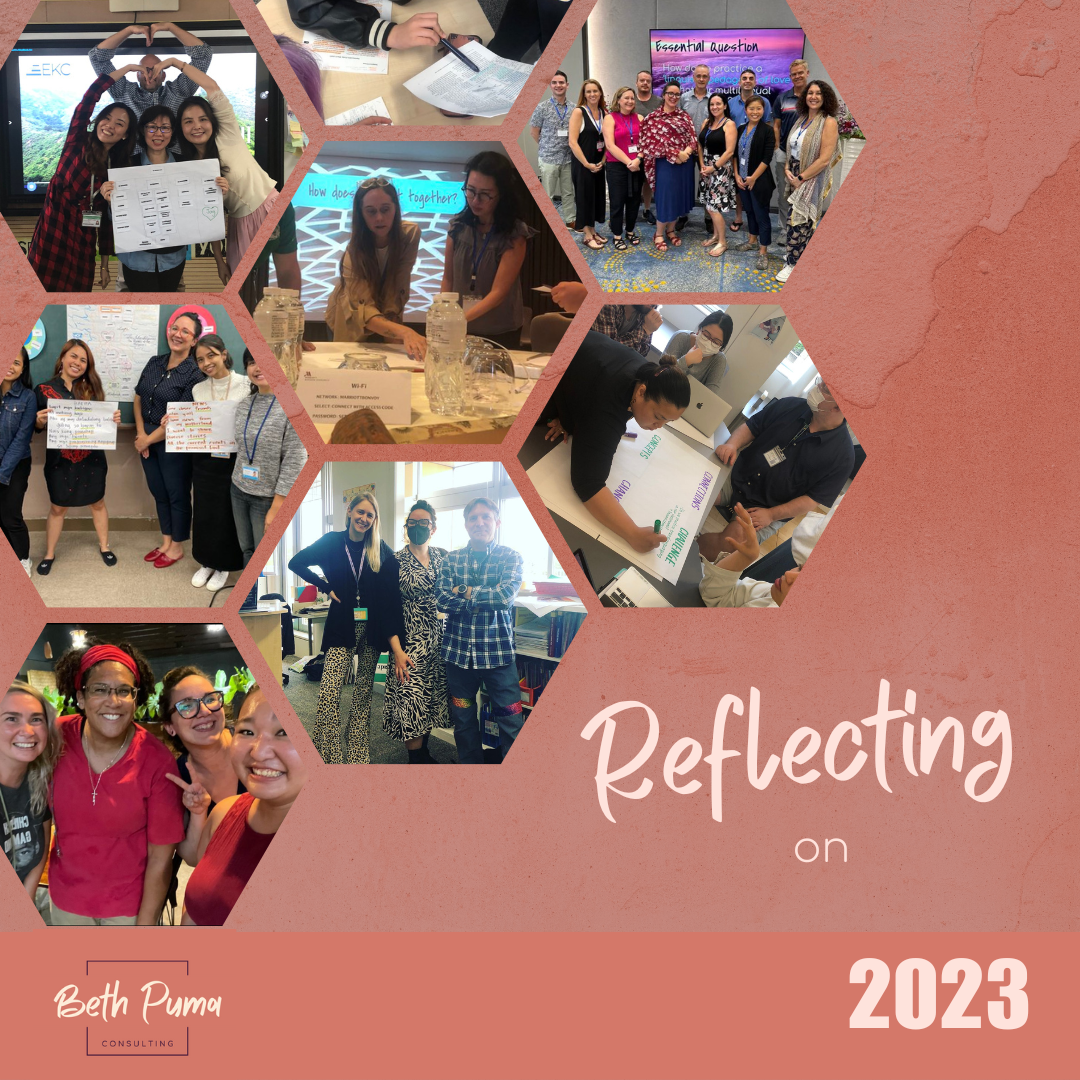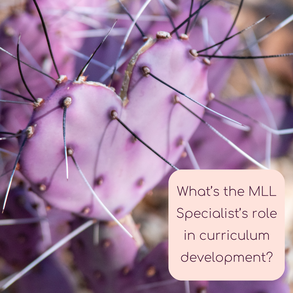 I know an a lot of MLL Specialists that are reluctant to attend or contribute to curriculum focused team meetings. I even know a few that throw their hands up with exasperation saying "they are a waste of my time." Yet, a strong curriculum is so crucial to strong instruction. A strong curriculum helps our multilingual students immensely. while making co-planning meetings more efficient. Curriculum is one of the key components of the multilingual ecosystem that we discuss in my professional learning workshops. Schools with a strong commitment to equity and their multilingual learners ensure collaboration time is embedded in their timetables for teaching teams and MLL specialists. Why is it then, that so many MLL Specialists experience reluctance, exasperation, or even trepidation when it comes to sitting down with colleagues for the unit design process? That's a question I often explore in coaching, since the answer(s) can be complex and contextualized. For now in this blog post I will share what I believe our role is at the table and possible ways to engage with questions. 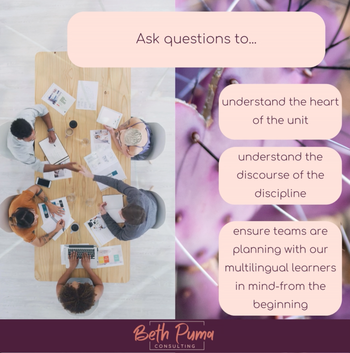 Participating in curricular meetings is important for MLL specialists to seek to understand the grade level content. They do not need to be content area experts of course, nor should they be expected to. Curricular meetings are a good time to ask questions to seek to understand in order to aid the design process with a clear eye on the horizon. Its a great time to ask questions like:
We immerse our learners in language rich classrooms, but remember part of the MLL Specialists job is to facilitate language learning. I find this is something, when done right, that all students benefit from.
As MLL Specialists we have a deep commitment to linguistic equity. We have a deep understanding of bilingualism and the role culture and identity play in our students lives. We can offer contributions to the unit to ensure that our students are seen and see others like them while nurturing their multilingual identity.
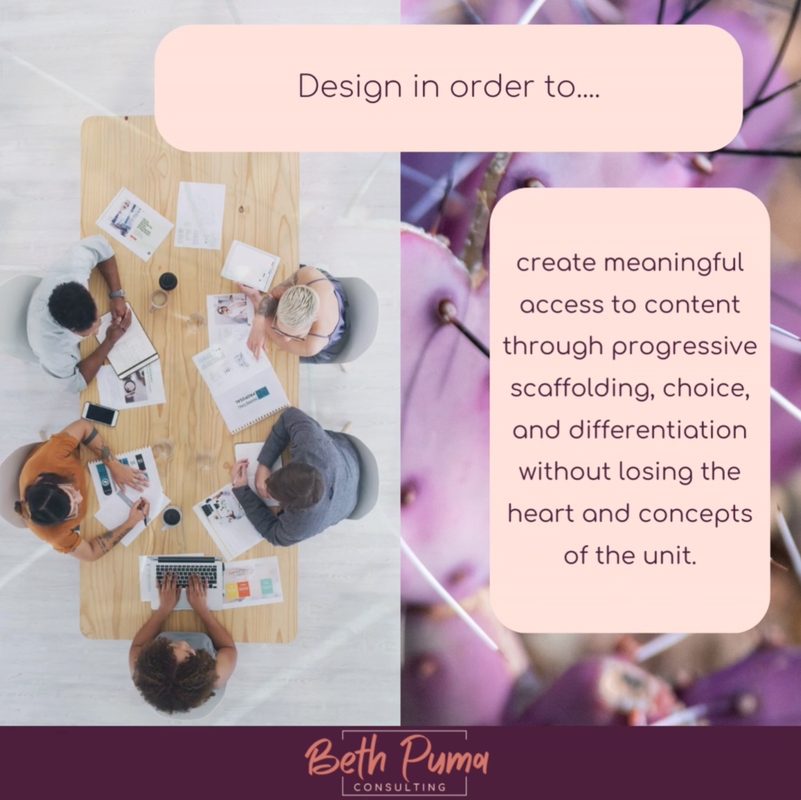 Creating access is an important role that many MLL specialists play at the curricular table. Just be careful! This isn't the only role. Questions we can ask of ourselves and design for include:
MLL Specialists are important participants in curricular design.Questions can be a quiet way of leading collaborative unit design conversations towards equity for our multilingual learners. Asking questions (even if answers aren't available...yet) also help develop a sense of collective efficacy around all of our students' success. Asking questions helps chip away at deficit mindsets without being preachy. It also pushes MLL specialists beyond the "magic trick -here's strategies" mode that many of us can fall into.
Go forth and be brave MLL Specialists! Your colleagues depend on you for your insights. Your multilingual students are counting on you. If you are interested in exploring these ideas more and incorporating them into your practice reach out to schedule a coaching call today.
0 Comments
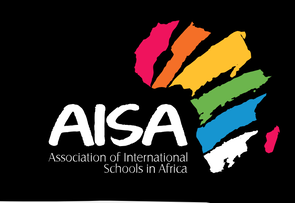 For too long English-only policies within international schools have upheld colonial ideals. As educators, we have the responsibility to disrupt harm within systems and build more loving, nurturing spaces where our students can be their authentic selves. We have the opportunity to cultivate dynamic multilingual ecosystems within our classes, through the open-hearted and strategic use of translanguaging. This March I will be traveling to Nairobi, Kenya to facilitate a two day workshop on translanguaging.This interactive workshop will explore the dynamic translanguaging practices of our students, as well as the pedagogy to foster multilingual ecosystems within our classes where all our students can thrive. The aim of this event is to create a community of practitioners dedicated to linguistic equity as they learn how to cultivate dynamics multilingual classroom ecosystem with translanguaging pedagogies. Register here on the Association of International School's of Africa's website. "Since the dawn of language, conversations have been powerful teachers." This quote by Jeff Zwiers, highlights the idea that whomever is doing the talking is doing the learning. Yet, multilingual learners are often denied access to curiosity and playful, discussion-rich classrooms because of misconceptions about language learning and bias How do we design for equitable discourse so that mlls can thrive in the #inquiry classroom? Designing for discourse in the classroom is a keystone to fostering critical thinking, acquiring a new language, sparking creativity, understanding different perspectives, and developing an empathetic learning community. Designing for discourse is also a radical resistance to what Paulo Freire describes as the "banking method" of education. We will unpack design elements that nurture equitable discourse for our multilingual learners in the inquiry classroom. 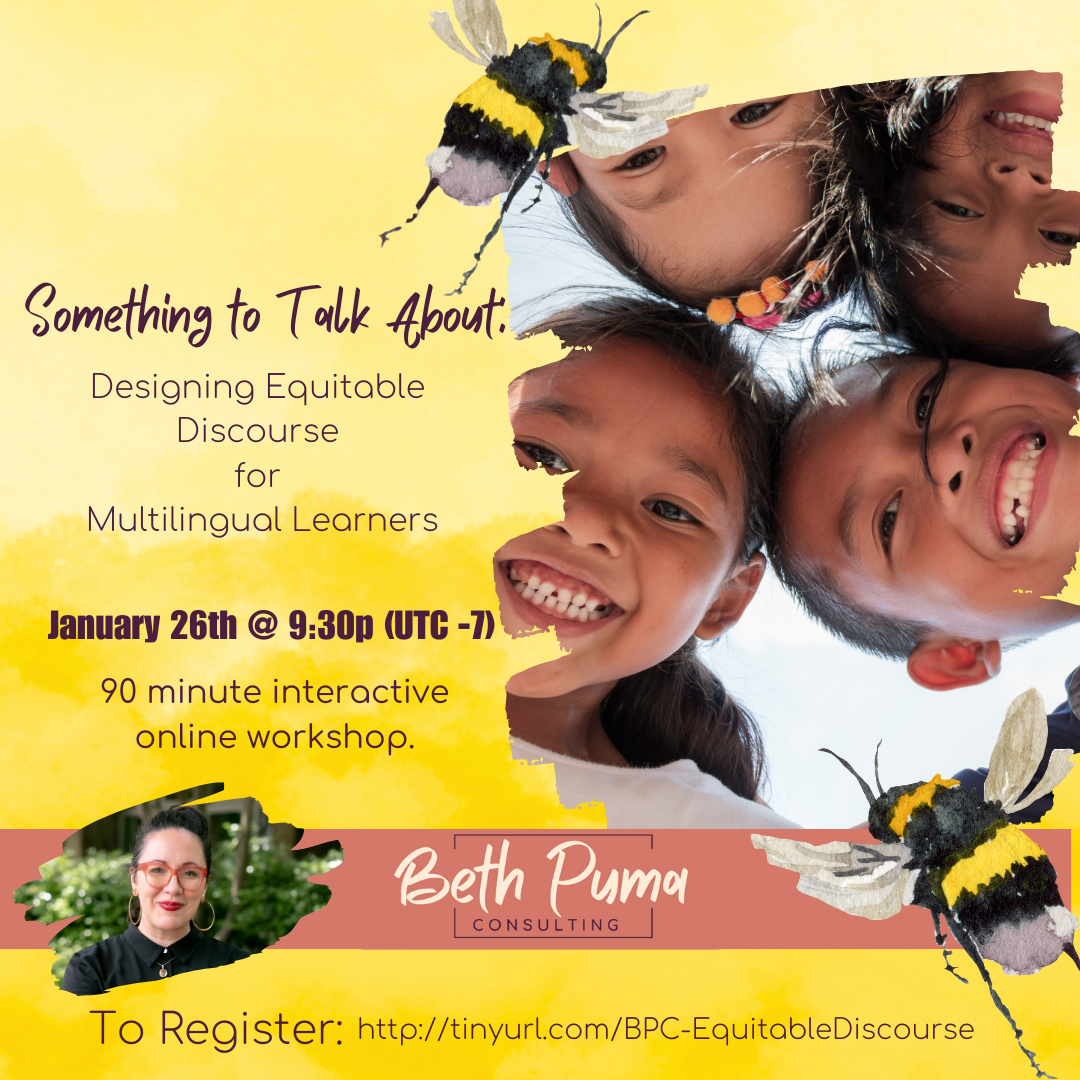 To register follow this link. What a year it has been! After ten years living abroad, it was time to return home for my family and I. It was time to reconnect with loved ones and the desert. And it was time to grow my consultancy. Moving back to Arizona allowed me to shift into full time consulting and coaching. It was also a time to do some inward looking and dreaming.
With a shift into full time consultancy Beth Puma Consulting had the opportunity to grow. I worked with more schools, conducted more workshops, coached more educators, and launched the MLL Ecosystem Project. I was able to work with educational organizations that I believed in like Global Online Academy and The Educators Collaborative. These are organizations where I could contribute to and be challenged by. For that I am grateful. 2023 was a year of change for me. Change is hard and I felt all the bumps, scrapes, and tears that come with it. Yet, change brings growth and for that I am happy. I am looking forward to what 2024 has in store. What do I know for sure? I feel more determined than ever to continue building systems where our multilingual students can thrive. Stay tuned! |
Beth PumaI am an MLL specialist, coach, and educational consultant that is dedicated to building a more transformative educational landscape that honors linguistic diversity and challenges societal paradigms. Archives
July 2024
Categories
All
|
